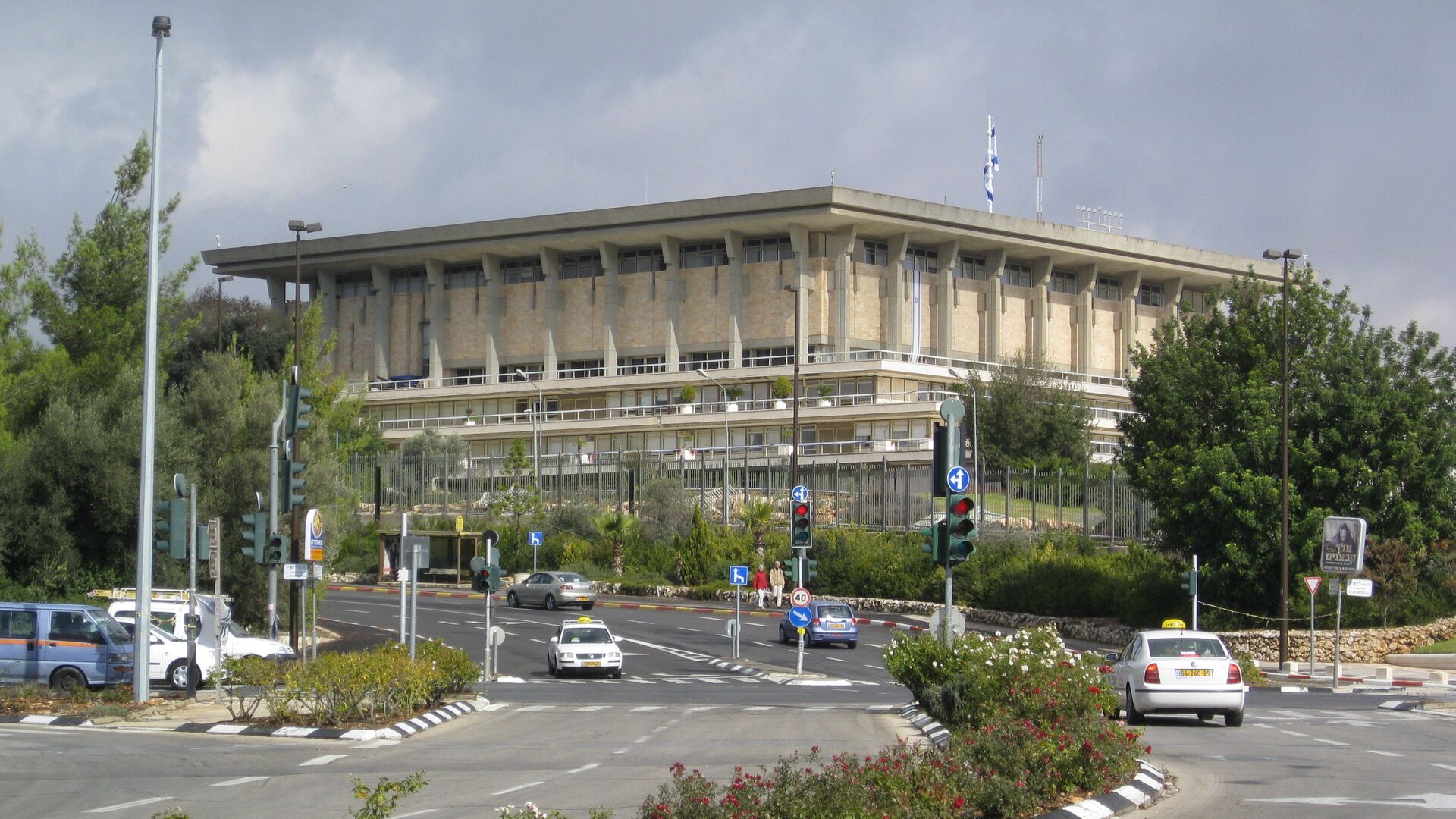https://sputnikglobe.com/20230327/israeli-parliaments-committee-approves-1st-part-of-judicial-reform-for-final-readings-1108826534.html
Israeli Parliament's Committee Approves 1st Part of Judicial Reform For Final Readings
Israeli Parliament's Committee Approves 1st Part of Judicial Reform For Final Readings
Sputnik International
The Constitution, Law and Justice Committee of the Israeli parliament, the Knesset, on Monday approved the first part of a controversial judicial reform bill, which would limit the Supreme Court’s authority, for its final readings amid widespread protests in the country.
2023-03-27T11:08+0000
2023-03-27T11:08+0000
2023-03-27T11:08+0000
world
israel
knesset
protests
https://cdn1.img.sputnikglobe.com/img/101543/59/1015435996_0:306:3264:2142_1920x0_80_0_0_1b00b7568b3cc8f5190f59db024d64e4.jpg
"At the end of a long day of deliberations, the Special Committee on Amendments to Basic Law: The Government, chaired by MK Ofir Katz (Likud), approved early Monday morning for second and third readings the proposed Amendment to Basic Law: The Government (Amendment No. 16) (Competence of Ministers and Deputy Ministers)," the statement read. Meanwhile, Netanyahu told his coalition partners that the work on judicial reform would be suspended. On Sunday, discussion of the law was postponed until Monday morning. Major nationwide protests erupted in Israel late Sunday night after Prime Minister Benjamin Netanyahu dismissed Defense Minister Yoav Gallant over his opposition to the controversial reform. Protests against the reform have been held in Israel for 12 straight weeks. In January, Israeli Justice Minister Yariv Levin rolled out a legal reform package that would limit the authority of the Supreme Court by giving the cabinet control over the selection of new judges, as well as allowing the Knesset to override the court's rulings with an absolute majority. The reform's opponents argue it will undermine democracy in Israel and put the country on the verge of a social and constitutional crisis.
https://sputnikglobe.com/20230326/israels-former-prime-minister-urges-netanyahu-to-halt-reform-as-police-deploy-water-cannons-1108810196.html
israel
Sputnik International
feedback@sputniknews.com
+74956456601
MIA „Rossiya Segodnya“
2023
Sputnik International
feedback@sputniknews.com
+74956456601
MIA „Rossiya Segodnya“
News
en_EN
Sputnik International
feedback@sputniknews.com
+74956456601
MIA „Rossiya Segodnya“
Sputnik International
feedback@sputniknews.com
+74956456601
MIA „Rossiya Segodnya“
israeli parliament, the knesset, controversial judicial reform bill
israeli parliament, the knesset, controversial judicial reform bill
Israeli Parliament's Committee Approves 1st Part of Judicial Reform For Final Readings
MOSCOW (Sputnik) - The Constitution, Law and Justice Committee of the Israeli parliament, the Knesset, on Monday approved the first part of a controversial judicial reform bill, which would limit the Supreme Court’s authority, for its final readings amid widespread protests in the country.
"At the end of a long day of deliberations, the Special Committee on Amendments to Basic Law: The Government, chaired by MK Ofir Katz (Likud), approved early Monday morning for second and third readings the proposed Amendment to Basic Law: The Government (Amendment No. 16) (Competence of Ministers and Deputy Ministers)," the statement read.
Meanwhile, Netanyahu told his coalition partners that the work on judicial reform would be suspended.
On Sunday, discussion of the law was postponed until Monday morning. Major nationwide protests erupted in Israel late Sunday night after Prime Minister Benjamin Netanyahu dismissed Defense Minister Yoav Gallant over his opposition to the controversial reform.
Protests against the reform have been held in Israel for 12 straight weeks. In January, Israeli Justice Minister
Yariv Levin rolled out a legal reform package that would limit the authority of the Supreme Court by giving the cabinet control over the selection of new judges, as well as allowing the Knesset to override the court's rulings with an absolute majority. The reform's opponents argue it will undermine democracy in Israel and put the country on the verge of a social and constitutional crisis.



